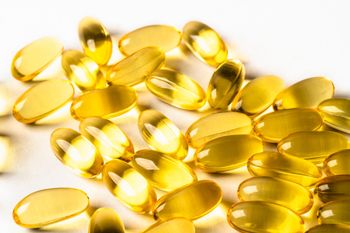
Probiotic strain may reduce cholesterol according to new in vitro study
An in vitro study conducted by Sabinsa Corp. provides evidence that the probiotic strain Bacillus coagulans MTCC 5856 (brand name LactoSpore) may help manage cholesterol levels.
An in vitro study conducted by Sabinsa Corp. (East Windsor, NJ) provides evidence that the probiotic strain Bacillus coagulans MTCC 5856 (brand name LactoSpore) may help manage cholesterol levels. In culture media, the strain was found to significantly reduce cholesterol levels under growing, resting, and even heat-killed conditions by 48.4%, 36.47%, and 8.5%, respectively. It also significantly reduced the cholesterol levels of cholesterol-rich foods such as egg yolks, chicken liver, and butter by 39.79%, 45.44%, and 49.51%, respectively, when incubated for 24 hours in conditions that mimic the in vivo environment.
While grown in the cholesterol-rich food, Bacillus coagulans MTCC 5856 produced propionic and butyric acids, short-chain fatty acids reported to inhibit the synthesis of liver cholesterol, say the researchers. “The butyrate produced by probiotics inhibits the biosynthesis of cholesterol in the liver, and propionate inhibits the synthesis of fatty acids, which ultimately reduces the rate of cholesterol biosynthesis, thereby lowering the cholesterol levels in the blood,” they write.
When exposed to bile, the strain also exerted bile salt hydrolase enzyme activity, which the researchers say is the main criteria and biomarker for the selection of probiotic strains as adjuncts for managing cholesterol. To lower cholesterol, probiotic strains metabolize cholesterol by assimilating and removing cholesterol in the gut to prevent excess absorption. With Bacillus coagulans MTCC 5856, researchers observed a 54.4% reduction in cholesterol during the growth of the strain in the presence of the bile over a 24-hour period. Researchers also saw that this reduction was time-dependent, suggesting that the removal of cholesterol was correlated with the growth of the strain.
The researchers point out that this evidence validates the use of Bacillus coagulans MTCC 5856 in the formulation of functional foods and supplements for supporting the cardiovascular system.
References:
1. Majeed M et al. “Evaluation of the in vitro cholesterolâlowering activity of the probiotic strain Bacillus coagulansMTCC 5856.” Food Science and Technology. Published online ahead of print on September 6, 2018
Newsletter
From ingredient science to consumer trends, get the intel you need to stay competitive in the nutrition space—subscribe now to Nutritional Outlook.





